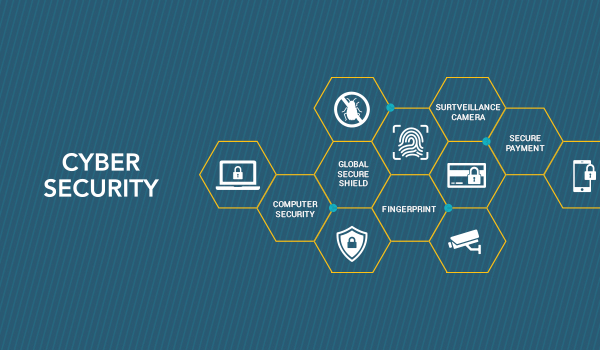In today’s digital age, cyber security is not just an IT concern; it’s a fundamental aspect of business strategy. With more companies relying on technology and digital systems, understanding why cyber security is crucial for business is more important than ever. Let’s dive into why protecting your business from cyber threats should be a top priority.
What is Cyber Security?
Cyber security involves protecting computer systems, networks, and data from theft, damage, or unauthorized access. It’s about implementing measures and protocols to safeguard digital information and maintain the integrity of your IT infrastructure. Essentially, it’s like having a security system for your digital assets.
The Growing Importance of Cyber Security
As technology evolves, so do cyber threats. Businesses today face an increasingly sophisticated array of cyber risks, making robust security practices essential. From safeguarding sensitive data to ensuring business continuity, the importance of cyber security can’t be overstated.
The Threat Landscape
Understanding the types of cyber threats is the first step in combating them. Here are some of the most common threats businesses face:
Types of Cyber Threats
- Malware: Short for malicious software, malware includes viruses, worms, and Trojans designed to damage or disrupt systems. It’s like an uninvited guest wreaking havoc on your digital home.
- Phishing: This involves tricking individuals into providing sensitive information through deceptive emails or websites. Think of it as a digital con artist trying to get you to hand over your personal details.
- Ransomware: A type of malware that encrypts your files and demands payment for the decryption key. It’s akin to a digital hostage situation where your data is held ransom.
- Insider Threats: These threats come from within the organization, often involving employees who misuse their access to harm the company. It’s like a trusted employee turning against the organization.
Real-World Examples of Cyber Attacks
To understand the gravity of cyber threats, let’s look at some real-world examples:
- Target Data Breach (2013): Hackers stole credit card information of over 40 million customers, leading to significant financial losses and damage to the company’s reputation.
- Equifax Data Breach (2017): Personal data of approximately 147 million people was exposed, highlighting the risks associated with handling sensitive information.
These incidents show that no business is immune to cyber threats, underscoring the need for effective security measures.
Why Cyber Security Matters for Businesses
Now that we’ve covered the basics, let’s delve into why cyber security is crucial for businesses:
Protecting Sensitive Data
- Customer Data: Businesses collect and store a wealth of customer information, from names and addresses to payment details. A breach can lead to identity theft and loss of customer trust. Imagine losing all your customers’ personal data—it’s a nightmare scenario for any business.
- Financial Information: Financial data is a prime target for cyber criminals. Ensuring its protection is vital to prevent financial loss and maintain business operations.
Maintaining Business Continuity
- Minimizing Downtime: Cyber-attacks can cause system outages and disruptions, leading to loss of productivity and revenue. Effective cyber security measures help keep your business running smoothly, even during an attack.
- Ensuring Operational Efficiency: A secure IT environment supports the smooth operation of business processes, reducing the risk of operational hiccups that can affect your bottom line.
Building Customer Trust
- Brand Reputation: A strong security posture enhances your brand’s reputation, showing customers that you prioritize their safety. Conversely, a security breach can tarnish your brand’s image and erode customer trust.
- Customer Loyalty: Customers are more likely to stay loyal to businesses that demonstrate a commitment to protecting their information. Trust is a crucial factor in retaining clients and fostering long-term relationships.
Legal and Regulatory Compliance
- GDPR and Other Regulations: Many countries have strict data protection laws, such as GDPR in the EU. Compliance with these regulations is not just a legal obligation but also a way to build trust with your customers.
- Consequences of Non-Compliance: Failure to comply with data protection laws can result in hefty fines and legal issues. Investing in cyber security helps avoid these risks and ensures you’re on the right side of the law.
Key Cyber Security Strategies for Businesses
To effectively safeguard your business, consider these key strategies:
Implementing Robust Security Policies
- Access Control: Restrict access to sensitive data and systems based on roles and responsibilities. It’s like locking the doors to keep intruders out and allowing only authorized personnel inside.
- Data Encryption: Encrypting data ensures that even if it’s intercepted, it remains unreadable without the proper decryption key. Think of it as putting your information in a secure, unbreakable vault.
Employee Training and Awareness
- Recognizing Phishing Scams: Educate employees on how to spot phishing attempts and avoid falling for scams. Training is essential in building a human firewall against cyber threats.
- Safe Internet Practices: Promote safe browsing habits and the importance of strong passwords. Simple practices can make a big difference in preventing cyber attacks.
Regular Security Audits and Updates
- Patch Management: Regularly update software to fix vulnerabilities and protect against known threats. It’s like keeping your digital defenses in top shape to counter emerging risks.
- Vulnerability Assessments: Conduct regular assessments to identify and address potential security weaknesses. This proactive approach helps prevent attacks before they occur.
Investing in Cyber Security Technology
- Firewalls and Anti-Virus Software: Use these tools to protect against unauthorized access and malware. They act as your first line of defense against cyber threats.
- Intrusion Detection Systems: These systems monitor network traffic for suspicious activity and provide alerts. It’s like having a security camera that keeps watch over your digital premises.
The Future of Cyber Security
As technology advances, so do cyber threats. Staying ahead of the curve is crucial:
Emerging Threats
Keep an eye on evolving threats, such as advanced persistent threats (APTs) and zero-day exploits. These new threats require updated strategies and technologies to mitigate.
Advancements in Cyber Security Technology
Innovations in cyber security technology, such as AI-driven security solutions and blockchain, offer new ways to enhance protection. Embracing these advancements can give your business a competitive edge in the fight against cybercrime.
Conclusion
In summary, cyber security is not just a technical requirement but a vital component of modern business strategy. Protecting sensitive data, ensuring business continuity, building customer trust, and complying with legal requirements are all crucial aspects of a comprehensive cyber security plan. Investing in robust security measures and staying informed about emerging threats can help safeguard your business from the ever-evolving landscape of cyber risks.
FAQs
- What are the most common types of cyber attacks?
- The most common types include malware, phishing, ransomware, and insider threats.
- How can small businesses protect themselves from cyber threats?
- Small businesses can implement strong security policies, train employees, and invest in basic cyber security tools like firewalls and anti-virus software.
- What should I do if my business experiences a cyber attack?
- Immediately contain the attack, assess the damage, notify affected parties, and consult with cyber security experts to address the breach.
- Are there any regulations I need to comply with for data protection?
- Yes, depending on your location, regulations like GDPR in the EU or CCPA in California may apply.
- How often should I update my cyber security measures?
- Regular updates are essential. Perform security audits and update software at least quarterly, or more frequently if needed.


